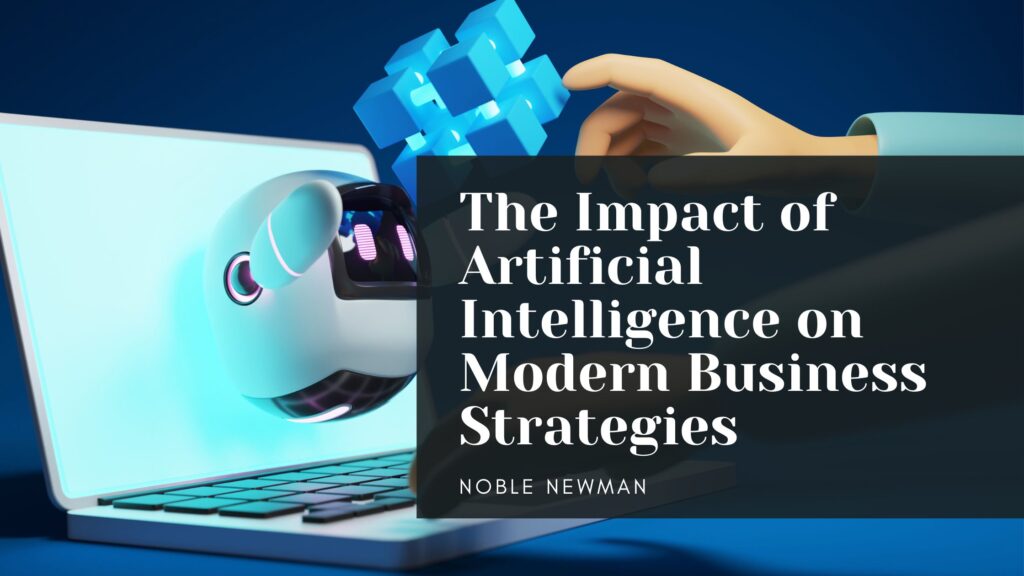Artificial Intelligence (AI) has rapidly evolved from a concept in science fiction to a transformative force reshaping industries across the globe. In the business world, AI is no longer a luxury but a necessity for staying competitive. Its impact on modern business strategies is profound and far-reaching, influencing everything from customer engagement to supply chain management.
Personalized Customer Experiences:
AI-powered tools and algorithms are enabling businesses to provide highly personalized customer experiences. By understanding individual preferences and behavior, businesses can tailor their products and services, fostering customer loyalty and increasing satisfaction.
Predictive Analytics:
AI enables predictive analytics, allowing businesses to anticipate market trends, customer behavior, and potential challenges. AI models can forecast demand, optimize inventory management, and inform pricing strategies by analyzing historical data and current market conditions. This foresight is invaluable for adapting to changing market conditions and staying ahead of competitors.
Automation and Efficiency:
AI-powered automation has streamlined various business processes, reducing costs and improving efficiency. Robots and AI-powered machines perform repetitive tasks with precision and speed in manufacturing.
Marketing and Advertising:
AI has transformed marketing and advertising strategies. With AI-powered algorithms, businesses can target their advertising with remarkable precision. Machine learning models can analyze consumer data to identify the most effective marketing channels, messaging, and timing.
Fraud Detection and Security:
In the age of digital transactions and cybersecurity threats, AI plays a critical role in protecting businesses and customers from fraud and security breaches. Machine learning algorithms can analyze vast datasets to identify unusual patterns and detect potential threats in real time, safeguarding sensitive information and financial assets.
Product Development and Innovation:
AI-driven tools are accelerating innovation by assisting in product development and research. Researchers use AI to analyze scientific data, discover new drug compounds, and develop breakthrough technologies. Businesses can also use AI to streamline the product development lifecycle, from ideation to market launch.
Human Resources and Talent Acquisition:
AI is transforming HR practices, making talent acquisition and management more efficient. AI-driven tools can analyze resumes, screen candidates, and predict employee turnover. Chatbots can handle initial candidate inquiries and onboarding processes, freeing HR professionals to focus on strategic initiatives.
Competitive Advantage:
Perhaps the most significant impact of AI on modern business strategies is its potential to provide a competitive advantage. Early adopters of AI technologies can gain a lead in their industries by optimizing operations, improving customer experiences, and staying ahead of market trends. As AI becomes more ubiquitous, those who fail to leverage its capabilities risk falling behind.
The impact of artificial intelligence on modern business strategies is transformative. AI touches nearly every aspect of business operations, from data analytics and customer engagement to supply chain management and innovation.
